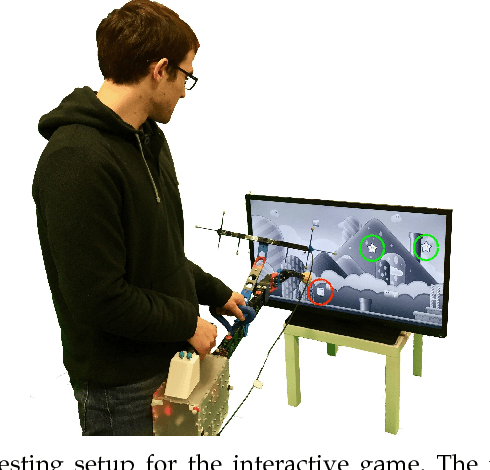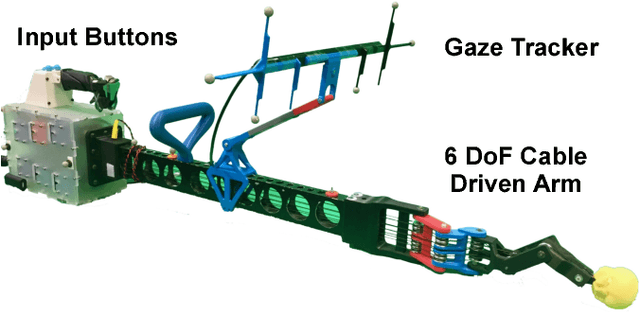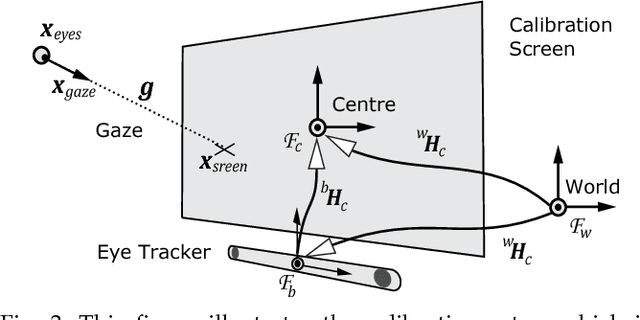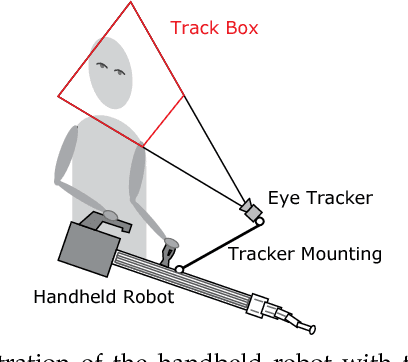I Can See Your Aim: Estimating User Attention From Gaze For Handheld Robot Collaboration
Paper and Code
Oct 15, 2018



This paper explores the estimation of user attention in the setting of a cooperative handheld robot: a robot designed to behave as a handheld tool but that has levels of task knowledge. We use a tool-mounted gaze tracking system, which, after modelling via a pilot study, we use as a proxy for estimating the attention of the user. This information is then used for cooperation with users in a task of selecting and engaging with objects on a dynamic screen. Via a video game setup, we test various degrees of robot autonomy from fully autonomous, where the robot knows what it has to do and acts, to no autonomy where the user is in full control of the task. Our results measure performance and subjective metrics and show how the attention model benefits the interaction and preference of users.
 Add to Chrome
Add to Chrome Add to Firefox
Add to Firefox Add to Edge
Add to Edge